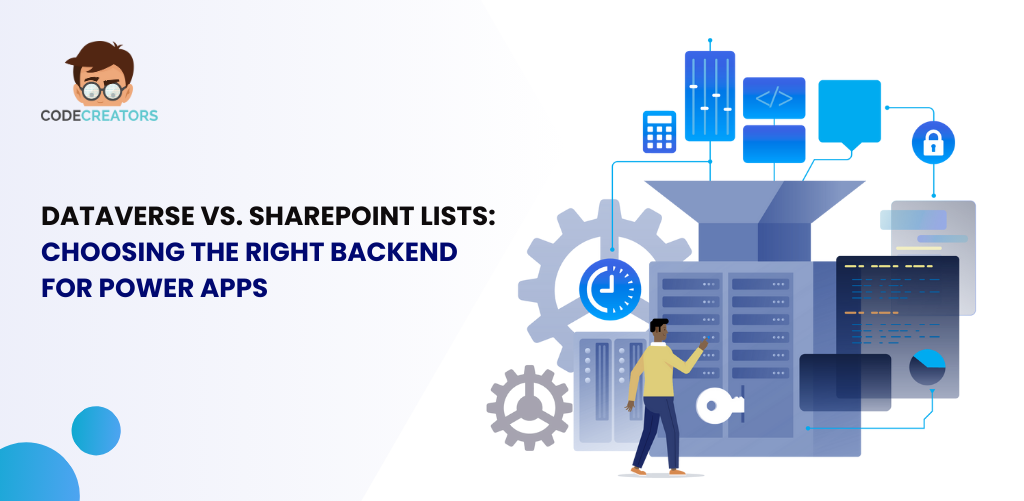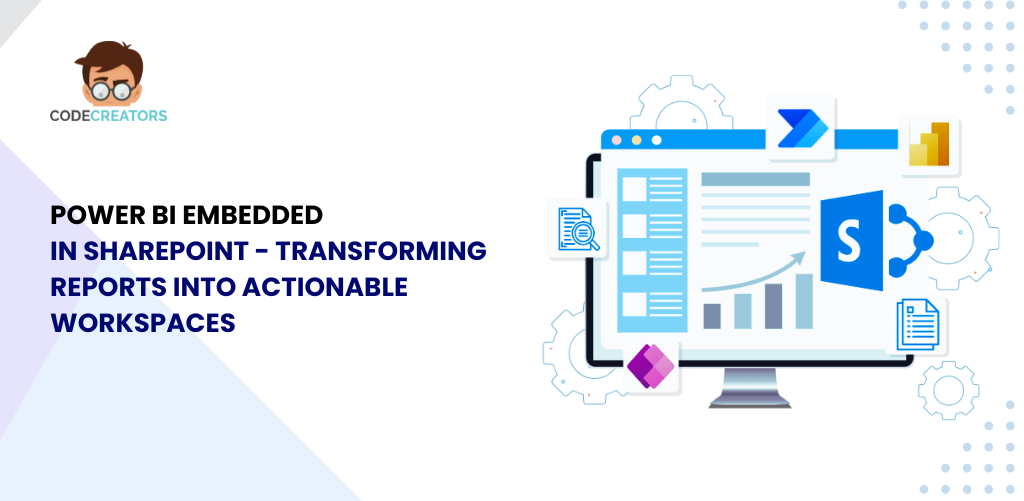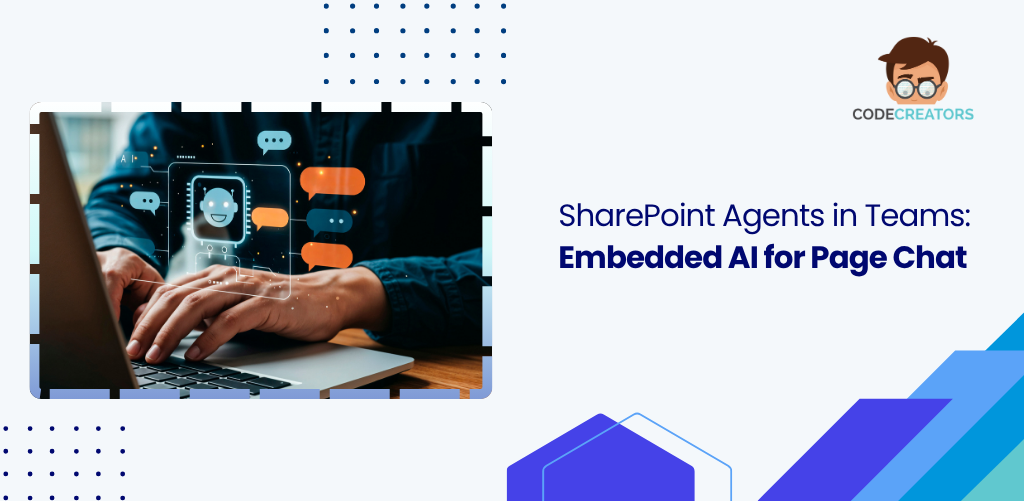The Future of Work: How Microsoft’s AI Tools Are Shaping Business Operations

The future of work is being fundamentally reshaped by advancements in artificial intelligence (AI), and Microsoft stands at the forefront of this transformation. With an extensive suite of AI-driven tools embedded across its product offerings, Microsoft is enabling businesses to redefine their operations, improve efficiencies, and enhance decision-making. From automating repetitive tasks to empowering data-driven insights, Microsoft’s AI tools are paving the way for smarter business operations. In this blog, we will explore the ways Microsoft’s AI tools are shaping business operations, focusing on real-world use cases that demonstrate their impact.
1. Microsoft AI-Powered Automation: Reducing Operational Overhead
AI-powered automation is one of the most significant ways Microsoft tools are transforming business operations. By automating routine, time-consuming tasks, businesses can free up valuable resources to focus on higher-level work, improving productivity and reducing costs.
Use Case: Streamlining HR Processes with Microsoft Power Automate
One of the most powerful examples of AI-driven automation is Microsoft Power Automate, a tool that allows organizations to automate workflows across multiple applications and services. In HR operations, Power Automate can be used to automate routine tasks such as employee onboarding, leave requests, and payroll processing. For instance, new hire data can be automatically captured from forms and entered into the company’s HR system, eliminating manual entry errors and reducing processing time.
Another AI-enhanced feature within Power Automate is its ability to intelligently read documents and pull relevant data using AI models, which can save HR teams hours of manual labor. The automation of these tasks streamlines operations and allows HR professionals to focus on strategic work, such as talent acquisition and employee engagement.
2. AI-Driven Insights for Smarter Decision-Making
Data is the lifeblood of modern business operations, and Microsoft’s AI tools are designed to transform this data into actionable insights. AI-powered analytics tools such as Microsoft Power BI allow businesses to analyze vast amounts of data in real time, helping decision-makers identify trends, spot inefficiencies, and optimize operations.
Use Case: Optimizing Supply Chain Management with Power BI
A global retail company, for instance, can leverage Power BI to gain real-time visibility into its supply chain operations. By integrating data from various sources such as inventory systems, transportation networks, and customer orders, Power BI’s AI-driven analytics can help the company detect bottlenecks, forecast demand, and optimize logistics. AI algorithms can also recommend optimal shipping routes or identify suppliers with the best delivery times, significantly reducing costs and improving delivery accuracy.
Through these capabilities, Power BI enables organizations to make more informed decisions, backed by AI-generated insights that provide clarity and precision.
3. Improving Customer Engagement with AI-Powered Tools
Customer engagement is at the core of business success, and Microsoft’s AI tools are enhancing how businesses interact with their customers. By using AI to personalize communication and predict customer needs, businesses can deliver more meaningful experiences that drive loyalty and satisfaction.
Use Case: Enhancing Customer Support with Microsoft Dynamics 365
Microsoft Dynamics 365, combined with Azure Cognitive Services, allows businesses to use AI-powered chatbots and virtual assistants to provide 24/7 customer support. These AI-driven assistants can understand and respond to customer queries in natural language, resolving issues faster and more accurately than ever before.
For example, a telecom company might implement AI chatbots to handle common customer service inquiries, such as billing questions or service troubleshooting. By automating these interactions, the company reduces waiting times and improves customer satisfaction, while human agents are freed up to handle more complex inquiries.
In addition, AI can analyze customer interactions to identify common pain points or preferences, allowing businesses to proactively address issues and provide more personalized support. This deeper understanding of customer behavior leads to higher engagement and long-term loyalty.
4. AI in Finance: Automating Risk Management and Compliance
In financial operations, the use of AI is revolutionizing how businesses manage risk and ensure compliance with regulatory requirements. Microsoft’s AI-powered tools help companies automate the detection of anomalies, identify potential risks, and ensure that they adhere to the ever-evolving landscape of financial regulations.
Use Case: Automating Fraud Detection with Microsoft Azure AI
A financial services firm can leverage Microsoft Azure AI to develop machine learning models that automatically flag suspicious transactions in real-time. These models can be trained to detect patterns indicative of fraudulent behavior, such as unusual transaction volumes, timing, or locations.
By automating the fraud detection process, businesses not only reduce the time it takes to identify potential threats but also minimize the risk of financial loss. Additionally, AI models continuously learn and adapt, meaning that their accuracy improves over time as they analyze more data, making them more effective at predicting and preventing fraud.
Azure AI also helps companies automate compliance reporting by extracting data from financial statements and ensuring that all necessary information is captured and formatted correctly, reducing the burden on compliance teams and minimizing human error.
5. Enhancing Workplace Collaboration with AI Tools
Collaboration is an essential component of any successful business operation, and AI is making it easier for teams to work together, regardless of location or time zone. Microsoft 365, with its integration of AI, is enhancing the way teams collaborate, share knowledge, and manage projects.
Use Case: AI-Enhanced Meetings and Collaboration with Microsoft Teams
Microsoft Teams, with AI features such as real-time transcription and translation, enables seamless communication between global teams. During virtual meetings, AI automatically transcribes spoken words into text, making it easier for team members to follow along or review conversations afterward. AI-powered translation also allows team members from different countries to communicate effectively in their preferred language.
Additionally, AI-enhanced scheduling tools within Teams can automatically suggest meeting times based on participants’ availability and preferences. These features streamline meeting organization and eliminate back-and-forth emails, saving valuable time for team leaders and project managers.
AI also powers productivity insights within Teams, helping managers understand how time is being spent and identifying opportunities to improve efficiency and collaboration across projects.

6. AI for Enhanced Marketing Operations
Marketing is one of the business functions that has benefited the most from AI-driven tools. Microsoft’s AI-powered marketing solutions allow businesses to deliver hyper-personalized campaigns, optimize targeting, and predict customer behavior.
Use Case: Personalized Campaigns with Microsoft Azure Machine Learning
A marketing team can use Azure Machine Learning to analyze customer data and segment their audience based on behavior patterns. These insights allow marketers to craft highly personalized email campaigns or digital ads, targeting the right audience with the right message at the right time.
By predicting which customers are most likely to convert, AI can optimize ad spending and focus resources on high-value prospects, ultimately driving better ROI on marketing efforts. AI can also help identify potential churn risks, allowing marketers to engage with at-risk customers through targeted retention campaigns.
With these capabilities, businesses can create more effective marketing strategies, increasing engagement and customer lifetime value.

Let’s Wrap it Up!
The future of work is evolving rapidly, and Microsoft’s AI tools are at the forefront of this transformation. From automating routine tasks to enhancing decision-making and customer engagement, AI-powered solutions are revolutionizing how businesses operate across various functions. As these technologies continue to advance, businesses that embrace Microsoft’s AI tools will be better positioned to optimize their operations, remain competitive, and drive growth in the digital age.
Whether it’s automating financial risk management or delivering personalized marketing campaigns, Microsoft’s AI solutions offer limitless potential for businesses to innovate and thrive in the future of work.
Sherry Rajani, is a tie-loathing adventurer and troublemaker who believes in turning ideas into reality. Even though his experience is primarily in Microsoft Cloud and On-Premise Solutions, Sherry has also lead teams building Custom ERPs, Mobile Applications, Data Management and other solutions.
After working in the Toronto Technology Industry for a while, Sherry started his own Technology Consulting Firm, Code Creators Inc., specializing in the Office 365 Stack ranging from SharePoint Online, the Power Platform, PowerBI and Microsoft Teams.



